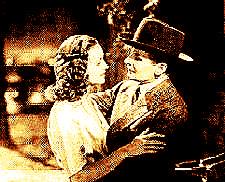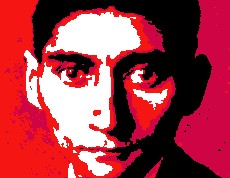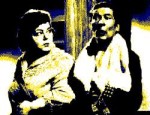Film Review

This was the penultimate film to be made by Maurice Tourneur, a director who made a significant contribution to 'quality cinema' in the 1930s and 1940s with many important works - Les Gaietés de l'escadron (1932), Les Deux orphelines (1933), La Main du diable (1943) - although nowadays he is largely - and criminally - overlooked. Tourneur's films have a distinctive look and feel which is informed by German expressionism and French poetic realism - note his use of light and shade to add depth and character to a situation and to heighten the emotional impact, in a way that is subtle and never contrived.
Like many of Tourneur's films, Après l'amour is beautifully shot, appropriating the moody film noir aesthetic that the director had helped to define in the early 1930s, through such films as Au nom de la loi (1932) and Justin de Marseille (1935), and would use so effectively in his final film, Impasse des deux anges (1948).
© James Travers 2006
The above content is owned by frenchfilms.org and must not be copied.
Film Synopsis
At a reception in honour of her husband winning the Noble Prize for literature, Nicole Mézaule meets a former lover who has some news for her. She is invited to visit a house outside Paris where she makes a shocking discovery. For the past eight years her husband, François, has been leading a double life - spending his afternoons with another woman who has borne him a son. François explains that all this began when Nicole left him for another man, eight years before. In the short time that elapsed before Nicole returned to him, having been thrown over by her lover, he had met and fallen in love with another woman, a young student named Germaine…© James Travers
The above content is owned by frenchfilms.org and must not be copied.
Similar Films
Here are some other films you may enjoy watching:- L'Avventura (1960)
- La Minute de vérité (1952)
- Et Dieu... créa la femme (1956)
- Kitty Foyle (1940)
- None But the Lonely Heart (1944)
Other related links:
Film Credits
- Director: Maurice Tourneur
- Script: Jean Bernard-Luc, Henri Duvernois (play), Pierre Wolff (play)
- Cinematographer: Armand Thirard
- Music: Marc Lanjean
- Cast: Pierre Blanchar (François Mesaule), Simone Renant (Nicole Mesaule), Giselle Pascal (Germaine), Gabrielle Fontan (Catou), Germaine Ledoyen (La soeur de Germaine), Nicole Chollet (La bonne), Claire Gérard (L'invitée), Marcel Melrac (Le propriètaire), René Hell (Le marchand de violettes), Paul Denneville (Le vieux journaliste), Jean-Jacques Duverger (Henri), Fernand Fabre (Fournier), Léon Arvel (Le médecin), Palmyre Levasseur (La voisine), Serge Canda, Cecil Baur, Alain Clairfond, Lucien Dorval, Lucien Jeunesse, Lisette Lebon
- Country: France
- Language: French
- Support: Black and White
- Runtime: 95 min
Kafka's tortuous trial of love

The Carry On films, from the heyday of British film comedy

The best French Films of the 1920s
